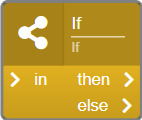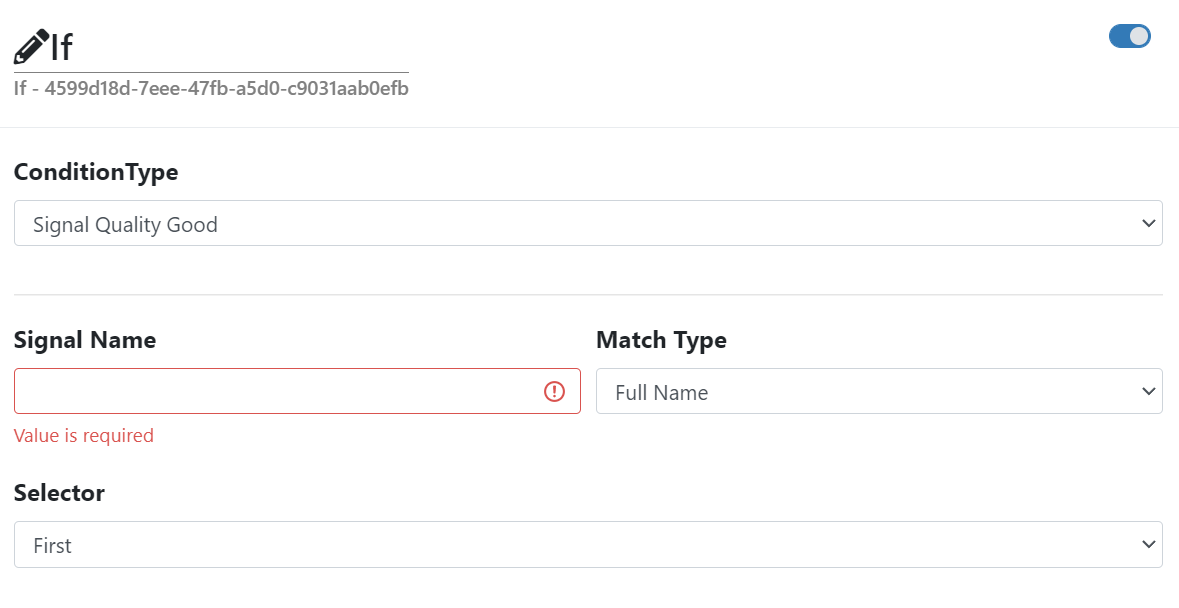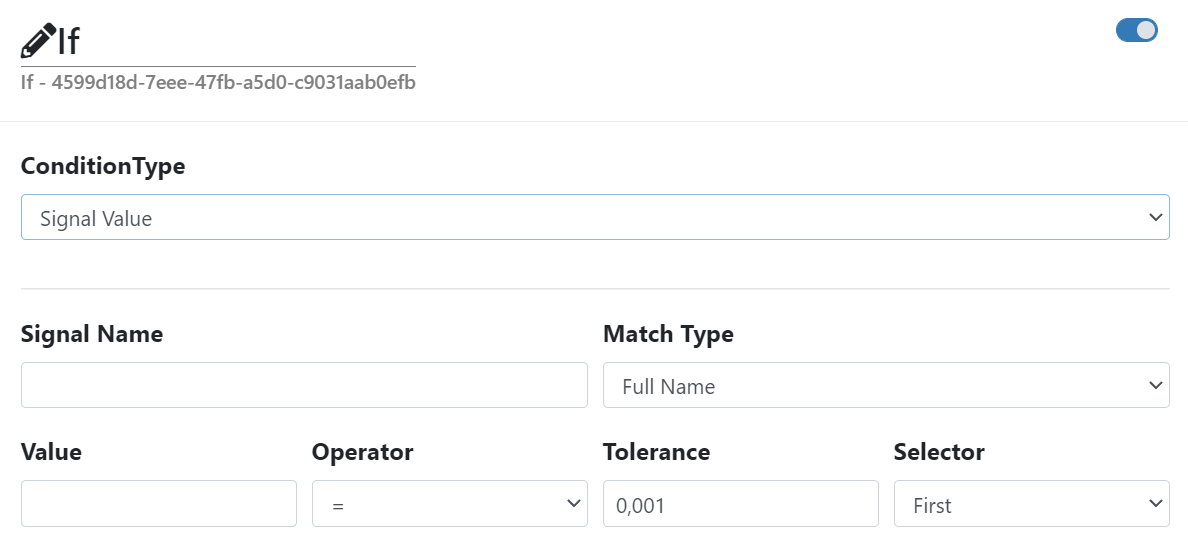If

The If node offers the possibility to change the flow of the data depending on a condition.
Configuration
- ConditionType
The type of the condition to evaluate. The possible types are:
Signal Quality Good
Signal Value
Default: Signal Quality Good
Signal Quality Good

Checks if the data point(s) of the signal(s) have good quality.
- Signal Name
The name of the the signal to check
- Match Type
How to match the name of the signal in the incoming data group.
- Full Name
Matching the incoming signal name with the Signal Name.
- Wild Card
Matching the incoming signal name with the Signal Name allowing wildcards (
*and?).- Regular Expression
Matching the incoming signal name with a regular expression specified in the Signal Name. For an overview of the regular expression language see the Microsoft Docs Regular Expression Language. The regular expression options
Singlelineare used.
Default: Full Name
- Selector
Defines against which data the condition should be checked.
- First
The condition should only check against the first data point in the signal.
- Last
The condition should only check against the last data point in the signal.
- Any
The condition is met if it is met for any data point in the signal.
- All
The condition is met if it is met for all data points of the signal.
Signal Value

Checks if the value of the data point(s) of the signal(s) meets a certain condition.
- Signal Name
The name of the the signal to check
- Match Type
How to match the name of the signal in the incoming data group.
- Full Name
Matching the incoming signal name with the Signal Name.
- Wild Card
Matching the incoming signal name with the Signal Name allowing wildcards (
*and?).- Regular Expression
Matching the incoming signal name with a regular expression specified in the Signal Name. For an overview of the regular expression language see the Microsoft Docs Regular Expression Language. The regular expression options
Singlelineare used.
Default: Full Name
- value
The value to check against (\(value\))
- Operator
The check operator
- =
\(\lvert x_i - value \rvert < tolerance\)
- ≠
\(\lvert x_i - value \rvert > tolerance\)
- <
\(x_i < value\)
- >
\(x_i > value\)
- ≤
\(x_i \le value\)
- ≥
\(x_i \ge value\)
Default: =
- Tolerance
The tolerance fo the equal and not-equal operator
Default: First
- Selector
Defines against which data the condition should be checked.
- First
The condition should only check against the first data point in the signal.
- Last
The condition should only check against the last data point in the signal.
- Any
The condition is met if it is met for any data point in the signal.
- All
The condition is met if it is met for all data points of the signal.
Default: First